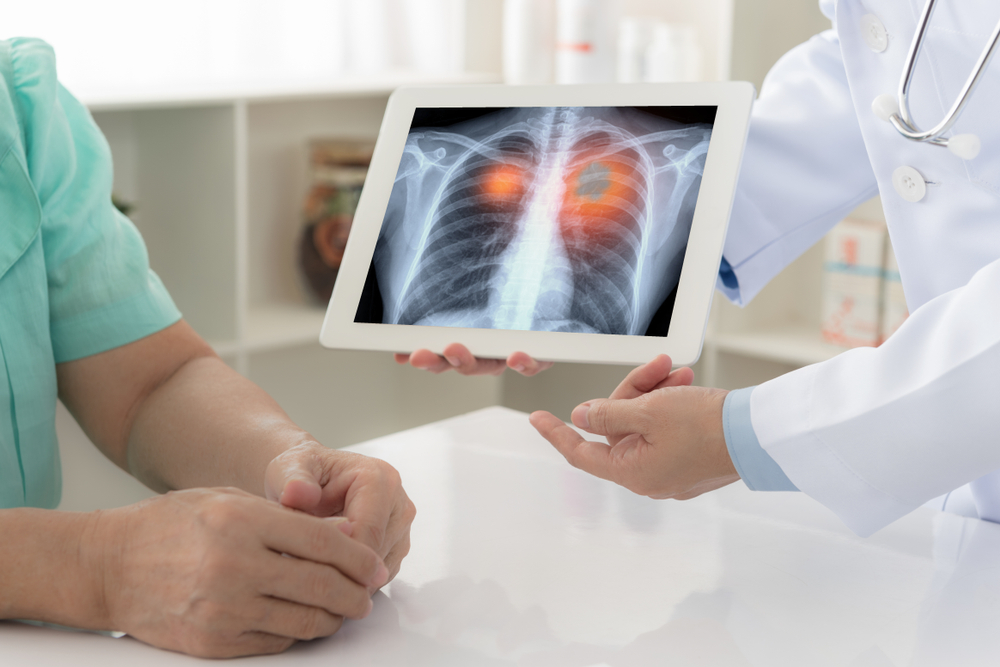Lung Cancer Screening
Lung Cancer Screening saves lives and MRI appears to be a new, non-invasive and radiation-free alternative to screening instead of CT.
Lung cancer is by far the leading cause of cancer death among both men and women.
Each year, more people die of lung cancer than of colon, breast, and prostate cancers combined. The five year survival rate for lung cancer is only 17%.
Overall, the chance that a man will develop lung cancer in his lifetime is about 1 in 15; for a woman, the risk is about 1 in 17. These numbers include both smokers and non-smokers. For smokers the risk is much higher, while for non-smokers the risk is lower. A common view of lung cancer is that it is self-inflicted by smoking – and that the problem will eventually disappear when everyone gives up the habit. But aside from the fact that none of this helps former or current smokers who currently have the disease, there are two major flaws with this thinking.
Firstly, lung cancer cases aren’t declining across the board. Globally, while the number of men diagnosed with lung cancer has dropped over the last two decades, among women it’s risen by 27%.
Secondly, the proportion of lung cancer patients who never have smoked is going up.
One US study reported that 17% of people diagnosed with the most common form of lung cancer in 2011-2013 had never smoked, compared to 8.9% of people diagnosed in 1990-1995. In the UK, researchers reported that the proportion of non-smokers undergoing surgery for lung cancer jumped from 13% to 28% from 2008 to 2014. And in Taiwan, the proportion of never-smoker patients increased from 31% in 1999-2002 to 48% in 2008-2011.
This, too, seems to affect women differently: one study has found that one in five women who develop lung cancer have never smoked, compared to one in 10 men.
Lung cancer screening represents an exciting opportunity to fundamentally change approach to our patients and save lives from lung cancer.
USA and Canada currently already have Lung Cancer Screening programs for adults aged 55 to 80 with a history of smoking. There is no such screening program in Australia.
The results from the European (NELSON) and American (NLST) Lung Cancer Screening studies recently presented at the International Association for the Study of Lung Cancer provided compelling evidence supporting the need for lung cancer screening. NELSON results were even more profound than those seen in the NLST, demonstrating a 26% reduction in mortality for men and 39–61% for women with screening.
Current Lung Cancer Screening is with low-dose CT annually. This approach has a number of potential problems including exposure to radiation with CT. As a result MRI screening has been explored as a potential screening test (MRI has no radiation).
Recent research presented by Dr Bradley Allen at Radiological Society of North America in 2018 answers this question:
- The researchers found that screening with CT or MRI resulted in a nearly equivalent outcome for patients in terms of life expectancy — though MRI had an improved diagnostic accuracy and lower false-positive rate than CT.
- “The real benefit of MRI in the study is the nearly fivefold reduction of false-positive screens relative to CT,” Allen said.
Similar findings were published in European Radiology in February 2019 by Michael Meier-Schroers et al in evaluating MRI for Lung Cancer Screening:
- ‘MRI performed comparably to low-dose CT in a lung cancer-screening programme’
Lung Cancer Screening saves lives and MRI appears to be a new, non-invasive and radiation-free alternative to screening instead of CT.


